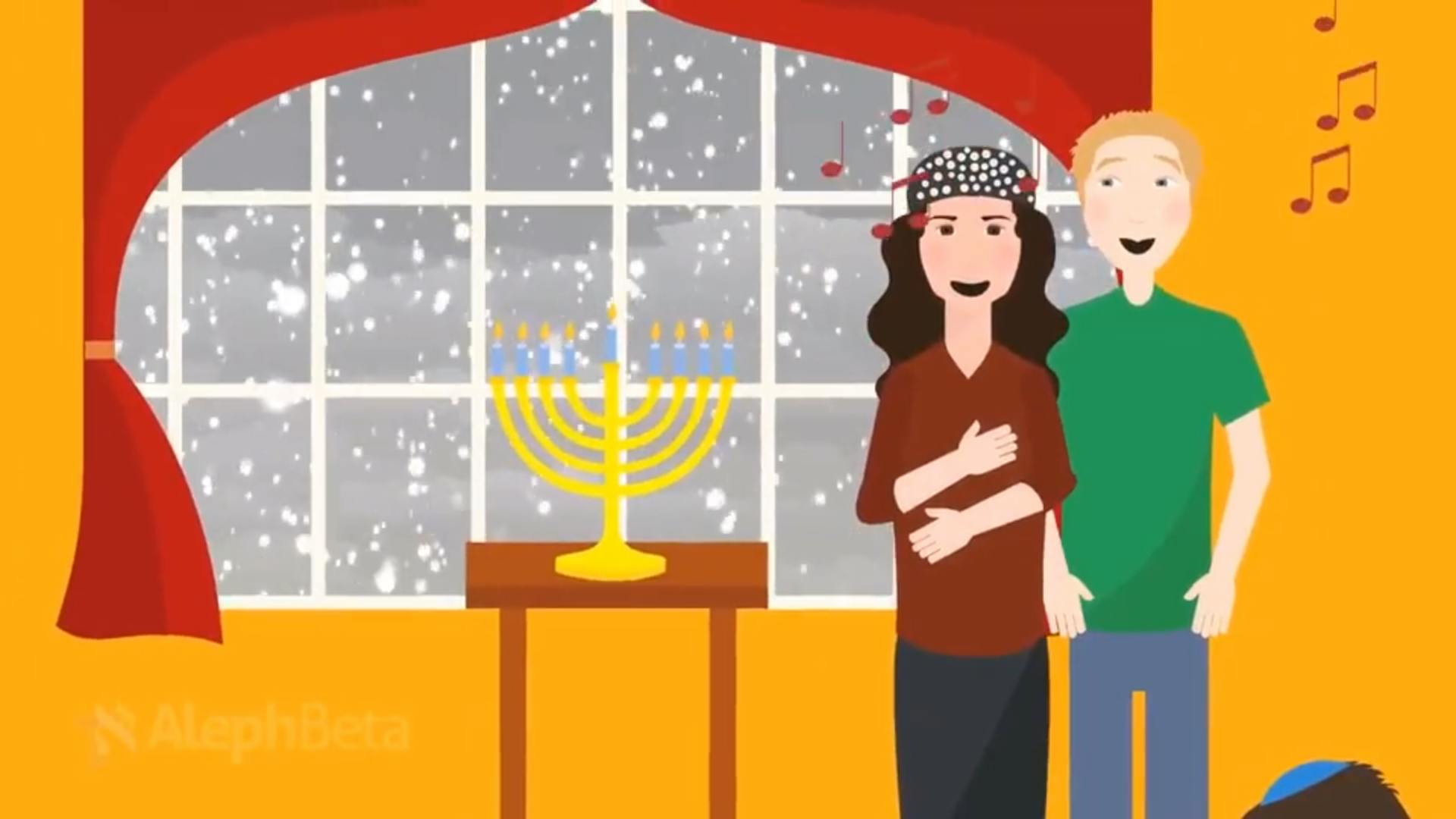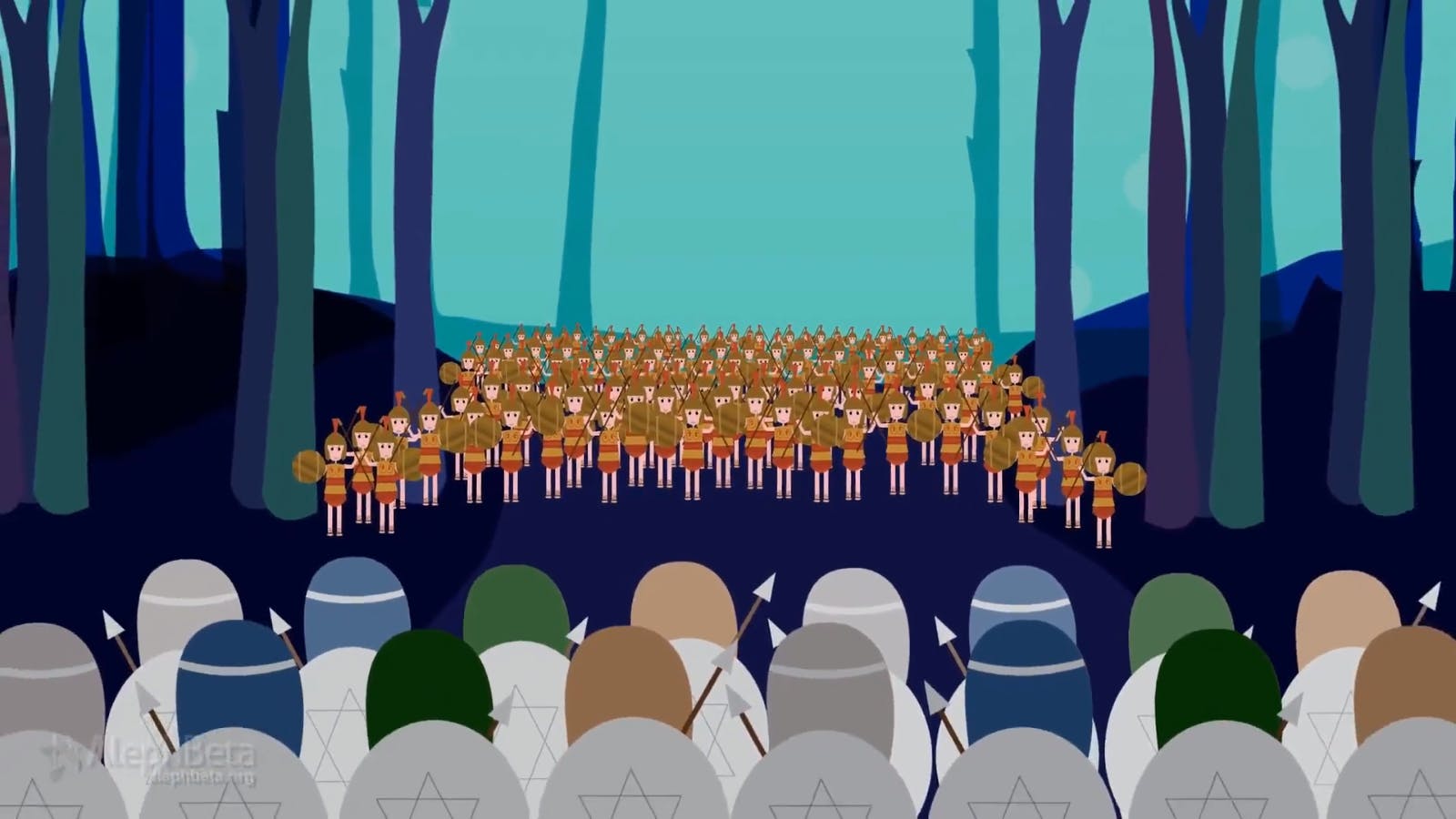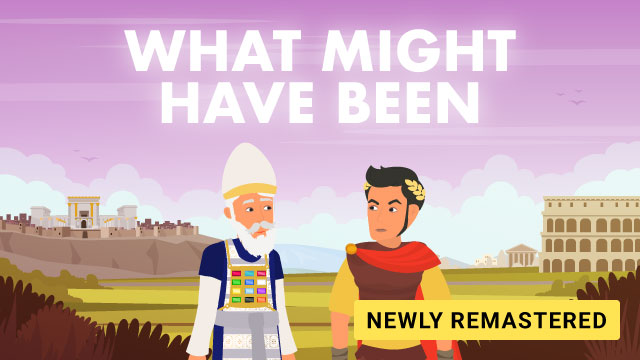
HANUKKAH VALUES
November 4, 2021
The Festival Of Jewish Values: How To Celebrate Hanukkah In A Changing World
Daniel Loewenstein
Scholar
For many of us, Jewish holidays basically fall into two camps: the serious ones, and the fun ones. On the one hand, you’ve got the High Holidays, Tisha B’Av and a handful of other fast days, where the mood is solemn, and we spend the day trying to reflect.
On the other hand, you’ve got the festivals, Purim and a couple of other days where the mood is pretty light, and there’s some combination of food, family, and fun customs to look forward to. And I think most of us would put Hanukkah into that second category, and call it a no brainer. The open license to eat doughnuts for a whole week itself is enough to land it there – let alone all the other great things we do on Hanukkah.
How Is Hanukkah Celebrated Today?
If that’s how you feel – I’m right there with you. Singing Ma’oz Tzur and dancing with my kids is heaven. The latkes that follow are another kind of heaven. There’s no special judgment happening on Hanukkah, no lost Temples to mourn – it’s just a fun, joyous holiday all around.
And yet – you knew there was a “yet” – when I think about what we’re celebrating on Hanukkah, the joy gets a little harder to tap into.
Let me explain what I mean by putting Hanukkah in a bit of context. So let’s go back to the end of the Torah, when Moses is giving his lengthy goodbye speech – I know, that’s a pretty broad context, but just go with it.
As the Israelites stand on the border of the land of Israel, Moses issues warning after warning, insisting they drive out the nations of the land, destroy the nations’ altars and shrines, and leave no one and nothing behind. The Israelites are commanded not to intermarry, to put to death anyone who serves foreign gods, and even to destroy whole cities if they turn their back on God.
All of this, in my opinion, is part of a clear, if extreme, message: foreign influence is dangerous, and needs to be avoided at all costs. Living as neighbors with pagan nations would expose the Israelites to foreign gods – so the nations must be driven out. Even their cultural artifacts could tempt the Israelites towards idolatry – so they all must be destroyed.
And if individuals or even communities within Israel do fall prey to this temptation, they must be put to death, for fear of the harm they could cause, and as a deterrent to all others.
Bottom line: the Torah seems to advocate a kind of extreme cultural isolationism. The Israelite people can serve as a positive influence for the rest of the world, but the world cannot be allowed to influence Israel.
The Israelites fail spectacularly at this directive. They never complete their conquest, leaving the neighboring nations to serve as negative influences, and turn to idols within a generation or two of settling the land.
This problem persists for centuries, culminating in the destruction of the Temple and exile. And when they finally return and build a new Temple, the problem returns as well.
Until Hanukkah, that is.
The Values Of Hanukkah
Hanukkah isn’t just a celebration of the fact that the Maccabees successfully liberated Israel from Greek rule. It’s also a celebration of the rejection of Hellenism, and the restoration of a true-to-Torah Judaism, free of foreign values.
Greek rule was far more than a political matter – Antiochus actively sought to enculturate the Jews, a goal that was actually appealing to an alarming amount of the population. The failure of Greek culture was the real threat we faced on Hanukkah, much more so than the Greeks’ physical presence in Israel.
When the Maccabees fought against that, they asserted their desire – so rare in Jewish history – to be faithful Jews. And with the defeat and removal of Antiochus’s forces, the Jews’ temptation to Hellenize dissipated, paving the way for a great renaissance in commitment to the Torah and to God.
When you think about Hanukkah in this context, it sort of makes it seem like it’s the "Holiday of Cultural Isolation" (I know – it doesn’t have quite the same ring as “Festival of Lights”). And that can put the brakes on the unfettered joy, for different reasons.
For one, cultural isolation doesn’t exist anymore. Most Jews today aren’t even physically isolated from the “outside world” – we live in communities all over the globe, with neighbors from all sorts of different backgrounds. And even those of us living in more insular communities aren’t culturally isolated – certainly no one reading this blog. That can add a little bitter to the sweetness of the holiday: we’re celebrating something our ancestors attained that we’ve since lost.
But it’s also more than that. Let’s be honest, how appealing does cultural isolation really sound? How many of us would be interested in living in a separate society, without being touched by any outside culture – none of its art, or literature, or ideas? And how seriously do we take the “threat”?
Maybe there are some things we all agree we’d be better off without access to, but how far would you go? No TV? No internet? No Harry Potter?! If that doesn’t sound appealing, well, then that leaves us with a tricky problem: can we really celebrate Hanukkah?
It’s like celebrating July 4th, but feeling that the world would probably have been better if the British had won the War of Independence. It doesn’t really make sense to do both of those at the same time.

How Do We Celebrate Hanukkah–and Jewish Values–in a Changing World?
I don’t have the perfect solution to this problem. But I do have one thought that helps me. And that is, if the facts are that I’m going to be a consumer of the culture I’m living in, I might as well be a thoughtful and informed consumer.
In other words, just because I’m exposed to different values doesn’t mean I have to accept and enact those values; I can choose what to accept and what to resist. I’m not doomed to believe in all the values that mainstream America believes in – I can think about them, and decide. It’s a choice.
To use a helpful metaphor, personality theorist Dan McAdams (1) suggests that part of what makes our personalities unique is the fact that we all choose life narratives – stories we tell ourselves about who we are and what we want out of life.
But he compares the way we choose life narratives to choosing from a menu: people’s narratives come “from the menu of images, themes, plots, and characters provided by the particular environments to which they are exposed…They make meaning within the milieu of meanings provided by the culture.” If that’s true, cultural isolation is kind of like being in a health food restaurant. The only choices available are all good for us.
Being a thoughtful and informed consumer, on the other hand, is like being in a huge cafeteria, but trying to order only healthful options. To extend the metaphor a little bit, we all know that even when we want to eat healthy, it’s not always so easy. Succumbing to the temptation of “bad” foods is only one of the hurdles involved.
Sometimes there are foods that look like they’re good for us, even though they’re not. There are some foods the jury’s still out on. Some foods are packed with micronutrients, and others are just harmless fillers, and we need to strike the right balance. And I think it’s the same with choosing our values.
There are some values that clearly run counter to Judaism. But there are also values that almost align with the Torah, or might align with the Torah. An article I read recently, for example, claimed that the popular idea that we should embrace ourselves for who we are actually runs counter to the Torah, because the idea endorses complacency, whereas the Torah always urges us to grow and be better.
I also attended a panel discussion a few years ago where someone said he was ambivalent as to whether happiness is a Jewish value – even though he agreed that it’s useful in helping people accomplish other important things, he wasn’t sure it was important in and of itself, from a traditional Jewish standpoint.
What Value or Ideas Can We Learn From Hanukkah?
So how do we “eat healthy,” with so much ambiguity? How do we know what are the right things to order from the values menu? Is there a process we can follow to figure this out? I think the answer really is that it takes a lot of study, and a lot of reflection. I don’t believe there are any quick fixes to this one.
But there is some good news – I know a really good place to start. Rabbi Fohrman’s course, The Hanukkah That Could Have Been, models the kind of process someone might use to think through whether and how a value fits with the Torah. So if you’re looking for a way to make your Hanukkah – and your Judaism – more thoughtful this year, take a look.
And as you learn more, let me know if there’s anything on the menu you’d recommend!
(1) McAdams, D. P. (2009). The Moral Personality. In D. Narvaez, & D. K. Lapsley (Eds.), Personality, Identity & Character: Explorations in Moral Psychology (pp. 11-29). Cambridge: Cambridge University Press.
